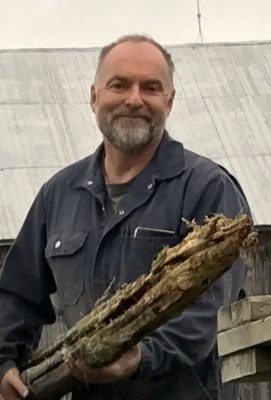 Water is a make-or-break commodity no matter where you live. Trouble is, it’s hard to see water this way. It’s usually so plentiful and safe in developed parts of the world that we can lose perspective on just how vital water is. But familiarity is never an excuse for lack of preparation, especially if you rely on a well. I’ve designed and installed independent water well systems and kept water flowing on my own rural property since 1986. I also regularly help friends and neighbours do the same. Except perhaps for drilling or digging a well, everything else about a creating a well water system is something you can learn to handle on your own. In fact, given the essential nature of water, I believe it’s important to understand how to be self reliant in all aspects of water well systems. By the time you finish this course you’ll:
Water is a make-or-break commodity no matter where you live. Trouble is, it’s hard to see water this way. It’s usually so plentiful and safe in developed parts of the world that we can lose perspective on just how vital water is. But familiarity is never an excuse for lack of preparation, especially if you rely on a well. I’ve designed and installed independent water well systems and kept water flowing on my own rural property since 1986. I also regularly help friends and neighbours do the same. Except perhaps for drilling or digging a well, everything else about a creating a well water system is something you can learn to handle on your own. In fact, given the essential nature of water, I believe it’s important to understand how to be self reliant in all aspects of water well systems. By the time you finish this course you’ll:
- Understand how to get lots of water from a weak well, even one that’s been letting you down for years
- Gain a professional’s understanding of how all typical water well systems work
- Know how to install the best kind of well pump and how to do it better than many professionals
- Be able to troubleshoot all three major types of water pumps
- See how to create a water system that continues to operate during extended power failures
- Have an overview of several off-grid well water systems that use alternative energy technologies
VIDEO: Watch a Deep Well Hand Pump Installation
 Of all the private sources of water you can tap into, water wells support the most people. Surface sources of water such as lakes, rivers and springs are options in some places, and so are rainwater collection systems. But of all these possibilities, wells are by-far the most relied upon. According to the National Groundwater Association, there are more than 13 million year-round households in North America that rely on groundwater exclusively, with more than 500,000 new residential water wells created annually using one of four techniques. Trouble is, unless you take steps to learn, you’ll be clueless about how to install your own water well system and how to make water flow again when it stops. Many times in my rural life I’ve fixed water well problems for myself and for neighbours in less time than it would take for a repair guy to drive to my place, and at a cost that’s much less than any plumber would charge. Speed and economy are two reasons to become your own water well expert, starting with the basics of water wells and pump systems.
Of all the private sources of water you can tap into, water wells support the most people. Surface sources of water such as lakes, rivers and springs are options in some places, and so are rainwater collection systems. But of all these possibilities, wells are by-far the most relied upon. According to the National Groundwater Association, there are more than 13 million year-round households in North America that rely on groundwater exclusively, with more than 500,000 new residential water wells created annually using one of four techniques. Trouble is, unless you take steps to learn, you’ll be clueless about how to install your own water well system and how to make water flow again when it stops. Many times in my rural life I’ve fixed water well problems for myself and for neighbours in less time than it would take for a repair guy to drive to my place, and at a cost that’s much less than any plumber would charge. Speed and economy are two reasons to become your own water well expert, starting with the basics of water wells and pump systems.
A Word About Safety and Risk
Many do-it-yourself activities are inherently dangerous, especially if it involves pressurized water, electricity and equipment. Reading beyond this point indicates your acceptance of complete personal responsibility for your safety and the safety of others. This course is for information purposes only. It doesn’t teach everything about staying safe with electricity or water. Take steps on your own to understand the risks and to learn how to protect yourself against them.
- Section 1: Section#1: Understanding Water Well Systems
- Understanding Water Wells
- What You Need to Know About Water Pumps
- Troubleshooting Water Well Pumps
- Section 2: Section#2: How to Install a Submersible Pump
- Lifting and Lowering the Pump
- Boosting Submersible Pump Reliability
- How to Install a Submersible Pump
- Section 3: Section#3: How to Get Lots of Water From a Weak Well
- How the Trickle System Works
- Building the Primary Side
- Building the Secondary Side
- Choosing a Float Switch
- Pump Priming the Easy Way
- Section 4: Section#4: Blackout-Proof Water Systems
- Dual Energy Systems
- Electricity-Free Water Systems
